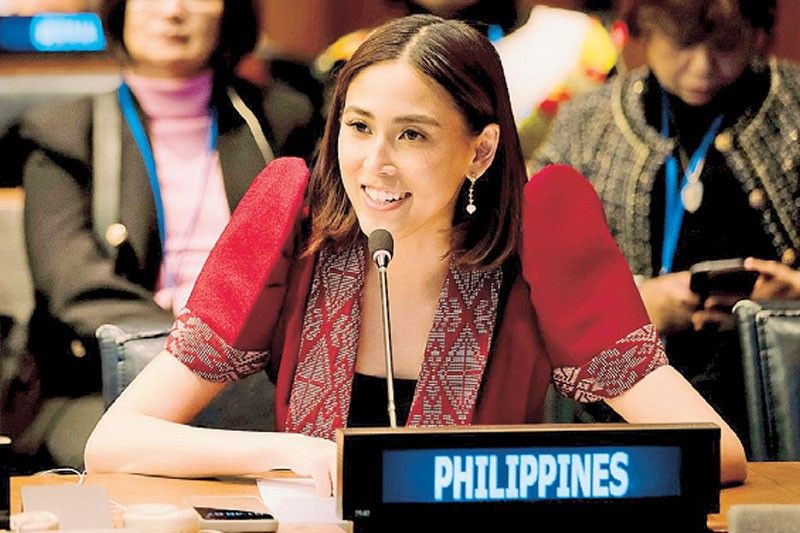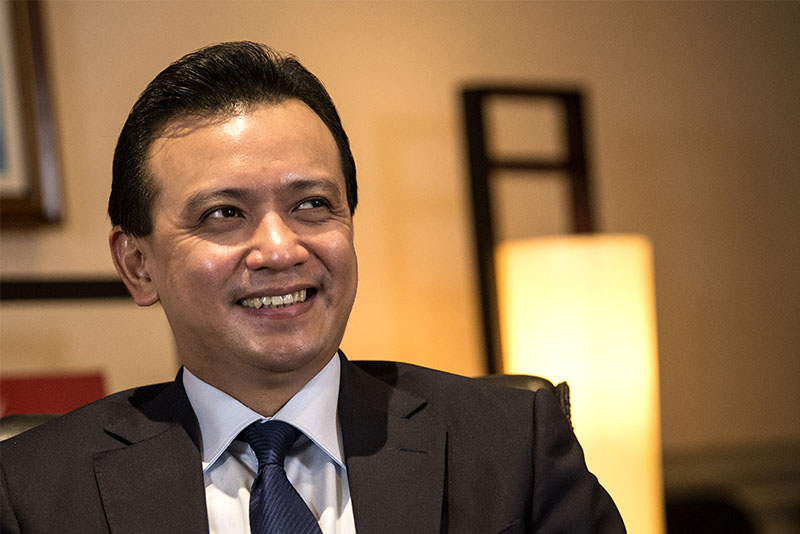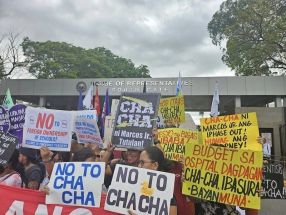Filipina youth champions education for women at United Nations

MANILA, Philippines — In her bid to break barriers in education experienced by women and girls in the Philippines, Mandy Romero, 23, wrote and delivered recently the country statement at the 68th Session of the United Nations Commission on the Status of Women (UNCSW).
Romero, who represented the youth of the Philippines at the UNCSW, spoke at the UN headquarters in New York with a clear message: “investing
in quality education is one of the most transformative zero poverty strategies—to give a platform for diverse female voices.”
The yearly conference, attended by member states of the UN, discussed the most important plans and strategies to advance gender equality worldwide. At the CSW Agreed Conclusions, each country representative plot the directions that governments will adopt to discuss hindrances to gender inequality. Once these directions are adopted by the UNCSW, “the actions are taken back to each country and incorporated into national policies and programs.”
“One in four Filipino children, and one in five women live in poverty. These are not mere numbers. They are countless women and children, in their multitude of experiences, who dream of accessing their right to education,” Romero told the youth representatives at the two-week UNCSW assembly.
Romero took up Bachelor of Science in Health Care Management and Policy, and Justice and Peace Studies from Georgetown University, graduating magna cum laude with a near perfect GPA of 3.95.
With over a decade of advocacy experience, Romero is a dedicated community organizer for accessible, quality education for indigenous, rural and urban poor communities. She is currently the president of Capital1 Solar Energy, which builds and operates utility-scale solar power plants and battery energy storage systems.
“While the Philippines has proudly achieved gender parity and free access for primary and secondary education, barriers like family responsibilities, malnutrition, hazardous journeys prone to gender-based violence, and disabilities keep one in 10 girls out of basic education,” said Romero, daughter of 1Pacman Rep. Mikee Romero and Sheila Romero, chairman of Globalport Terminals.
In her three-minute speech, Romero cited the need to address the problems faced by students in isolated, disadvantaged and conflict-affected areas in the Philippines.
Romero said, “There are at least 7,144 schools coined by the Department of Education as ‘Last Mile Schools (LMS),’ which are those with less than four classrooms, mostly makeshift or
nonstandard ones; no electricity; no funds for repairs; and no easy road access due to the almost unnavigable terrain rendering students to walk more than an hour to school from their homes.”
“In LMS, where students (experience) difficultly (to) travel over an hour to unelectrified, multi-grade classes — 75 percent are indigenous students. These indigenous communities’ right to peaceful education must be protected by systems of access and equity. Public agencies collaborate to uplift vulnerable communities through Alternative Learning via Rural Farm Schools, training for teachers, and solar-powered facilities. Quality education requires culturally- and gender-responsive curricula designed by and with the community,” she told the UNCSW assembly.
Romero stressed the need to strengthen the tertiary education and employability of young Filipino women, whose labor participation rates dwindle by the age of 25.
“As girls in poverty move from secondary to tertiary education or the workforce, the success gap and gender divide widen. Only 49 percent of Filipino women are part of the labor force, compared to 73 percent of men. However, college-educated Filipino women are 73 percent more likely to participate in the labor force. The Free Tertiary Education Law has provided free university tuition, subsidies, and technical and vocational training targeting out-of-school, unemployed youth — increasing higher education enrollees by nine percent. Of the 2.4 million annual scholars, majority are women,” she said in her speech.
- Latest
- Trending






























